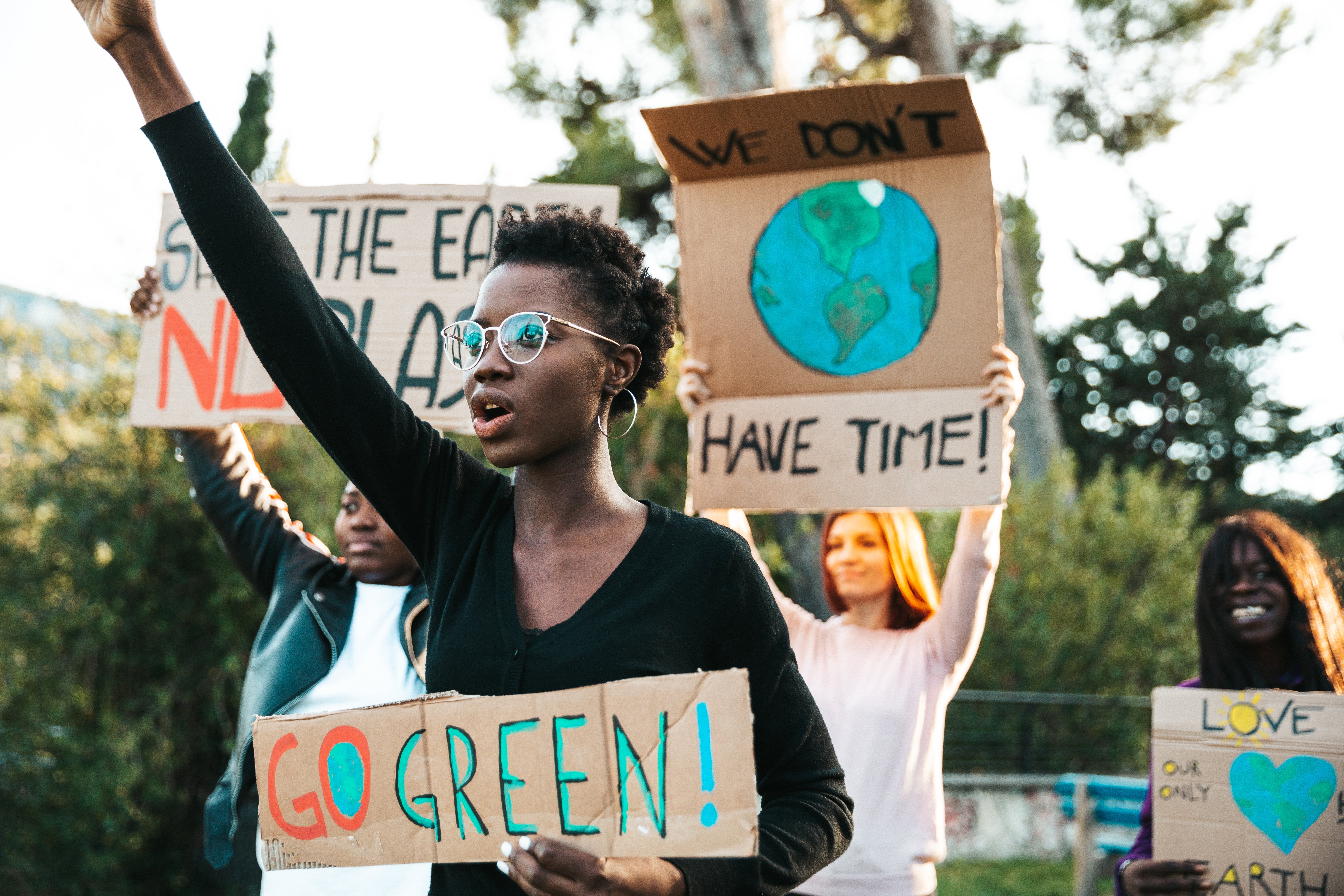Covid, conflict and the climate crisis are putting young people’s futures at risk
We need to acknowledge that our decisions, which have contributed to climate change and conflict, are weighing down young people, writes Patricia Scotland


Over the past few weeks, dramatic events around the world have unfolded amid an already worsening public health emergency. Afghanistan fell to the Taliban, a powerful earthquake flattened parts of Haiti and a major report warned that temperatures are likely to rise by 1.5C. Our world is in a state of crisis.
These grim realities are wreaking havoc on the wellbeing of people in all parts of the world, particularly young people who are feeling a sense of anxiety due to the predictions for their futures and our planet.
The political, climate and health news coverage from around the world is a barrage of seemingly relentless and almost apocalyptic reports of human suffering. Yet, many young people have been obliged or have chosen to devote their precious time and youthful energy to help fight the spread of the virus, stand up for human rights and provide leadership in the climate movement.
Sometimes there is anger or a dark sense of hopelessness, and for many, anxiety is fast becoming the norm rather than an exception. Half of all mental health problems start by 14 years of age and most cases are undetected and untreated, while depression is one of the leading causes of illness and disability among adolescents. This context has largely been ignored in our pandemic response or climate action.
Studies show a high level of toxic stress in children who have lived through conflict or dislocation, while research also suggests changes in climate affect both the onset and severity of depression in people, with youth at the centre of the “eco-anxiety” storm.
Although it might at present be too early to measure the full extent of its impact, surveys speak of the pandemic’s devastating effects, with young people describing how it is triggering a fresh wave of severe anxiety and self-harm.
The pandemic has also disrupted critical mental health services in 93 per cent of countries around the world, leaving many young people without professional help. It is important to recognise the long-term negative impact that inaction will have in the lives of young people whose mental health is suffering a silent and remorseless assault from the far-reaching consequences of climate, conflict and Covid.
We need urgently to prioritise action with and for our young people to protect their welfare and future prospects. Without immediate engagement, we set out ill-prepared for our future on a perilously stormy sea in a flimsy vessel, without a paddle.
There is good reason to be worried. Our new global youth development index report, which measures the state of young people in 181 countries against 27 indicators including mental well-being for the first time, shows undeniably dark areas of concern amongst bright horizons of hope.
Progress against mental health indicators has deteriorated between 2010 to 2018. Legislation in most countries is outdated and takes away the rights of persons with mental illnesses rather than protecting them. The persistence of stigma relating to mental health compounds such detrimental factors, as does reluctance to accord those with debilitating mental health conditions the same priority and funding as many other types of illnesses.
More encouragingly, we notice an overall improvement of 3.1 per cent in the conditions of young people between 2010 and 2018, even though progress has been slow. The pandemic has, by all indicators, tended to hijack and slow progress, flattening the upward trajectory. The report was led by the concerns and priorities expressed by young people, who asked us to put the spotlight on often ignored issues such as youth disability, including mental health, for which our index highlighted a huge data gap.
As we stand, hopefully, now closer to the end of the pandemic and prepare to rebuild, we must take note of the report’s call on governments to reform their mental health legislation in line with the principles of the United Nations Convention on the Rights of Persons with Disabilities.
Legislation does not in itself guarantee change. We need to bring everyone on board – starting with tackling systemic issues that make young people vulnerable, educating people about mental health stigma, considering youth perspectives in legislative reforms, dedicating adequate resources to care and treatment services, and prioritising research into the effects of the pandemic on young minds and ways to mitigate them.
We need to acknowledge that our decisions, which have contributed to climate change and conflict, are weighing down young people, and it is our responsibility to protect them by not just offering them coping mechanisms but also combating the root causes.
Such challenges might seem insurmountable, but facing them head on is the only reasonable solution, otherwise we risk storing up troubles for the future, which would be detrimental to us all. The global conversation must move beyond simply talking about resilience, to implementing practical action which will help to make whole and healthy those most in need of urgent care and support.
Our task now is to mobilise and lead, and to persuade the international community, which has already allocated trillions of dollars towards buoying economies from the effects of the pandemic, to adopt the same duty of care for the most vulnerable among us – our children.
Patricia Scotland QC is secretary-general of the Commonwealth of Nations






Join our commenting forum
Join thought-provoking conversations, follow other Independent readers and see their replies
Comments